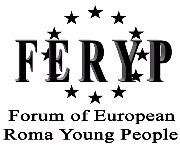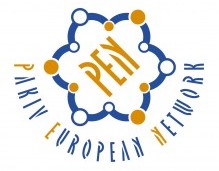Brussels, the 30th June, 2011
Honourable Stakeholders,
We all know that Roma are European citizens. Nevertheless, they face structural discrimination and are not accepted as equal citizens. Prejudices and stereotypes are widely spread and often remain unquestioned in the media, in politics and in society. Stigmatization of Roma and antigipsysm are some of the main causes of social exclusion. We are strongly concerned about the current rise of extremism, racism and antigipsysm in many European countries:



This situation puts in doubt not just the prosperous, tolerant and peaceful future of Europe, but it puts at risk the potentials and the future of a huge group of young people! Over 30 % of Roma are currently under the age of 14, half of the Roma population is under 18 --and this in a constantly aging society.
A key issue will be to tackle the root causes of their social exclusion. Exclusionary mechanisms based on stigmatization in education (an incredibly huge number of the Roma youth go to special schools in many cases without professional diagnosis) and employment stop young people from developing their potential and capacity.
Many young people have difficulties with their cultural background because of their ongoing experience of discrimination. We see a strong mechanism of self-stigmatization. And the majority of these young people, who manage to move forward successfully, feel forced to deny their identity and never invest their capacity for the sake of their community. While this situation seems to apply all around Europe, we face a new struggle and challenge for Roma youngsters who earlier or more recently migrated to Western Europe: A huge generation of youngsters lives day by day without prospects because our governments want to deport them even after 10 or 20 years with refugee status, for example to Kosovo, which will result in a social and humanitarian disaster. Many newly arrived EU citizens are denied the right of education and will grow up marginalized, uneducated and without a future.
We as Roma youth should have access to actively take part in shaping our own future and presence.
Active citizenship is necessary to ensure a sustainable society where every voice is heard regardless of social class, gender, ethnicity, religion or sexual orientation. Only a society that respects human rights is able to fight the threats against the same values. As young Roma and non – Roma engaged in this issue, we want to raise the public awareness of our involvement as active citizens and equal actors in society.
On behalf of the existing Roma Youth Networks we demand:
A strong commitment of the EU, its member states and of you as relevant stakeholders in the Roma civil Society, for establishing a channel of communication with the youth and including a youth dimension in the programs and policies having in mind the national Roma Strategies as well. These policies should be developed based on a mutual dialogue between young people and the policy-makers.
- Roma young people must also be involved in decision-making processes to strengthen a positive image of Roma and their voice against discrimination and stigmatization. Having a voice is essential for our active citizenship and participation.
- Support youth self-organization, empowerment and mobilization and involve Roma youth in decision-making processes in all issues that affect them;
- Increase participation of Roma youth in the development and implementation of policies and programmes that address discrimination and stigmatization, intercultural dialogue between Roma and non-Roma, and equal opportunities for Roma youth;
- Support Roma youth from disadvantaged communities through scholarships, increasing affirmative action in accessing labour markets and, last but not least, by reversing open discrimination and educating societies at large about the positive aspects of social inclusion and interethnic cohesion.
We call on member states and national and regional authorities to commit financial resources towards effectively implementing the adopted strategies and to involve youth in implementation and monitoring of the planned activities.
We are here to offer you our help, experience, contacts and methods on grassroots, local and national levels, because we want to see the strategies not just written but implemented. We want to avoid the situation on the picture of Brueghel (Elder Fish Eat Small Fish) from 1557. This is why we have to work together to make a change in Europe today, not tomorrow: to make the voice of our networks heard. Together we must commit ourselves to common efforts in order to strengthen the situation of Roma youth in Europe. herefore we are present here to declare our interests (on behalf of the networks) to improve the conditions and opportunities for Roma youth.






